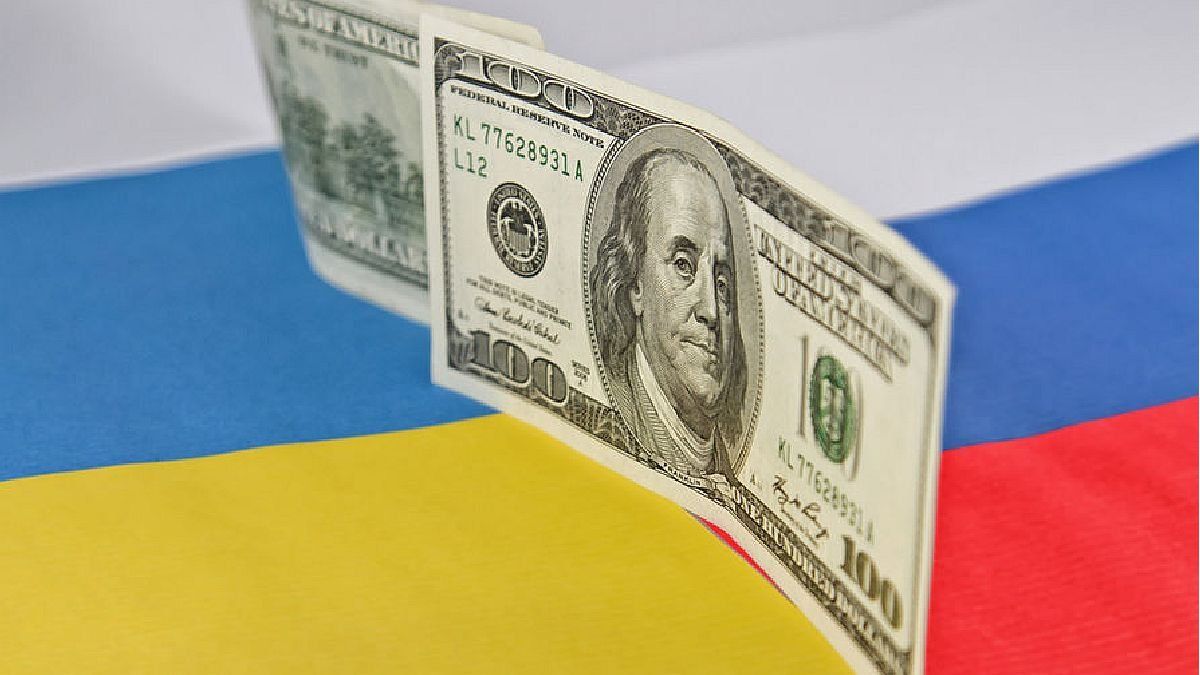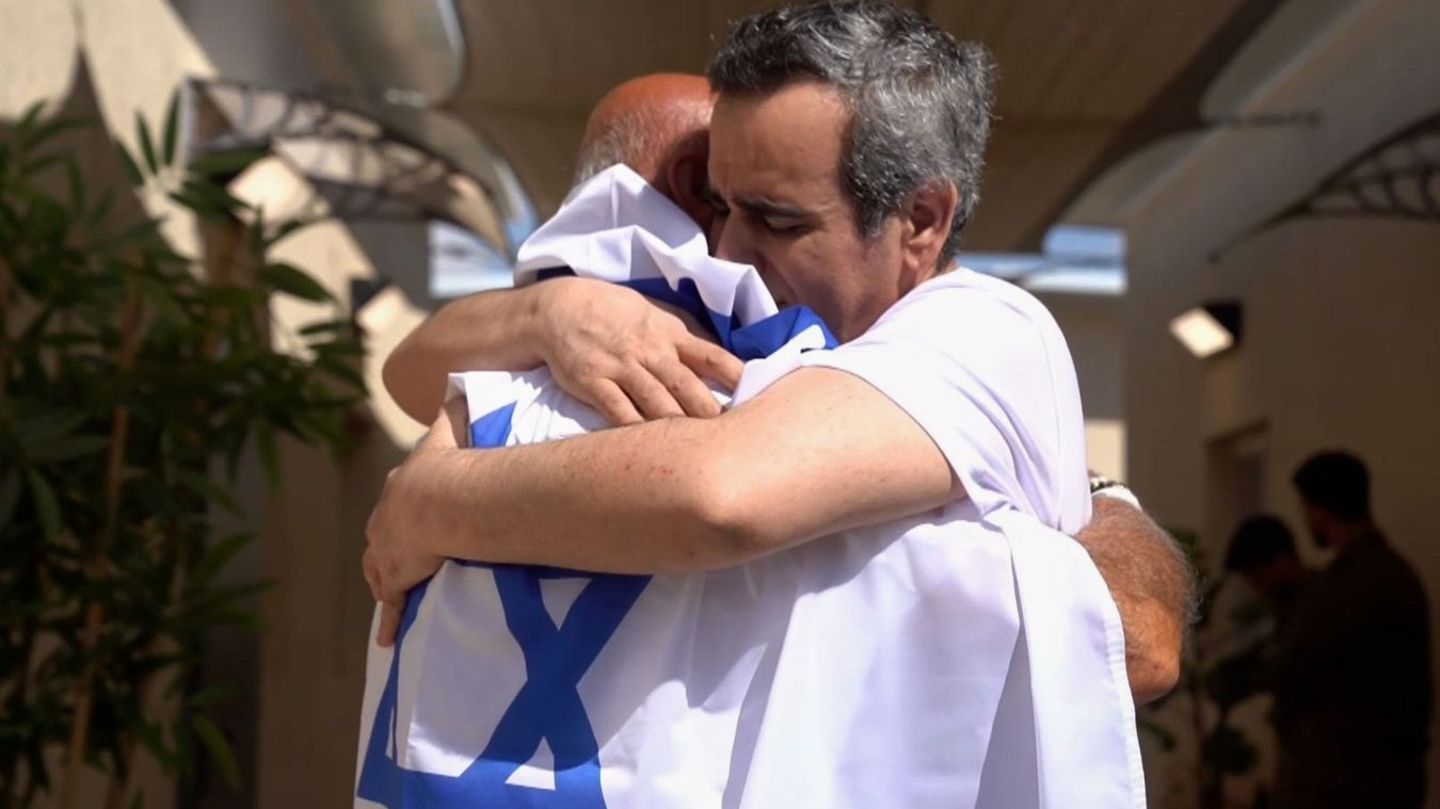He goes on to argue that “the war in Ukraine is like the Arab states’ attack on Israel in 1973 or the Soviet invasion of Afghanistan in 1979. The economic impact of the war on energy and food prices is creating a risk of stagflation”, begins the column “Seven worst-case scenarios of the war in Ukraine” published this Sunday on the finance site”.
The 7 worst scenarios of the Russia-Ukraine war
1 Will the Russians succeed in capturing Kyiv and Ukrainian President Volodymyr Zelenskiy in two, three or four weeks or never?
For Ferguson, although the Kremlin may have only temporarily withdrawn some of its forces from around kyiv, “there is now little doubt that there has been a change of plans.”
“In a briefing on March 25, the Russian generals claimed that it had never been their intention to capture Kyiv or Kharkiv, and that the attacks there were only intended to distract and degrade Ukrainian forces. The real Russian objective was and is gain full control of the Donbas region in the east of the country,” he continued.
For the analyst, the statements “sound like a rationalization of the enormous losses that the Russians have suffered since they launched their invasion.”
“Either way, we will now see if Putin’s military can achieve this more limited goal of encircling Ukrainian forces in the Donbas and perhaps securing a ‘land bridge’ from Russia to Crimea along the Sea of Azov coast. All that can be said with certainty is that this will be a relatively slow and bloody process, as the brutal battle of Mariupol has made clear.”
2. Do the sanctions precipitate such a severe economic contraction in Russia that Putin cannot achieve victory?
The Russian economy has undoubtedly been hit hard by Western restrictions, but for Ferguson, “it has not yet been hit hard enough to end the war.”
“As long as the German government resists the embargo on Russian oil exports, Putin continues to earn enough foreign currency to keep his war economy afloat. The best proof of this is the remarkable recovery of the ruble’s exchange rate against the dollar,” pointed.
Before the war, one dollar was trading at 81 rubles. After the invasion, the exchange rate plummeted to 140. However, last Thursday it returned to 81, mainly reflecting a combination of foreign payments for oil and gas and Russian capital controls, the new strategy announced by Putin himself.
War in Ukraine Bucha massacre
Bodies scattered in the streets of Bucha, Ukraine.
Photo: AFP
3. Does the combination of military and economic crisis precipitate a palace coup against Putin?
For Ferguson, the Joe Biden administration is banking on regime change in Moscow.
“The United States (US) government has not only labeled Putin a war criminal and launched proceedings to prosecute Russian perpetrators of war crimes in Ukraine, but is trying to install a war between democracy and autocracy, between freedom and repression, between an order based on rules and one governed. There is no doubt in my mind that the United States (and at least some of its European allies) intend to get rid of Putin,” he warned.
4 Is downside risk driving Putin to desperate measures?
Ferguson argues that this is now the crucial question: “Biden and his advisers seem remarkably confident that the combination of attrition in Ukraine and sanctions on Russia will provoke a political crisis in Moscow comparable to the one that dissolved the Soviet Union 31 years ago.” .
However, the Bloomberg analyst emphasizes how the Russian leader “already possesses weapons of mass destruction, including the world’s largest arsenal of nuclear warheads, as well as chemical and, certainly, biological weapons.”
“Those who prematurely proclaim Ukraine’s victory seem to forget that the worse Russia does in conventional warfare, the greater the likelihood that Putin will use chemical weapons or a small nuclear weapon,” he warned.
Those who dismiss the risk of a Third World War, “overlook this harsh reality.”
“In the Cold War, it was NATO that could not hope to win a conventional war with the Soviet Union. That is why it had tactical nuclear weapons ready to launch against the Red Army if it entered Western Europe. Today, Russia would not stand a chance.” in a conventional war with NATO. That’s why Putin has tactical nukes ready to launch in response to a Western attack on Russia. And the Kremlin has already argued that such an attack is underway.”
5. Are the Chinese keeping Putin afloat but on the condition that he accept a peace compromise that they offer to negotiate?
In his opinion, it is quite clear that the Chinese government will side with Russia, but not to the extent that it triggers secondary US sanctions on its institutions that do business with Russian entities.
“I no longer expect China to play the role of peace broker. Friday’s frigid virtual summit between the European Union and Chinese leaders confirmed that.”
6. Does our attention deficit disorder appear before all this?
Ferguson warns of the start of the usual news cycle, resulting in “a challenge test for Western public support for the Ukrainian cause”, which could be overlaid by persistent price increases, “combined with the perception misconception that Ukraine is winning the war, rather than simply not losing it.
7. What is collateral damage?
Finally, Ferguson pointed out that the longer the war between Russia and Ukraine lasts, “the greater the threat of outright stagflation”.
“This problem will be more serious in countries that are heavily dependent on Ukraine and Russia not only for energy and grain, but also for fertilizers, the prices of which have practically doubled as a result of the war. Anyone who believes this it will not have adverse social and political consequences, he is ignorant of history,” he concluded.
Source: Ambito
David William is a talented author who has made a name for himself in the world of writing. He is a professional author who writes on a wide range of topics, from general interest to opinion news. David is currently working as a writer at 24 hours worlds where he brings his unique perspective and in-depth research to his articles, making them both informative and engaging.




